YAKIMA, Wash. — Orders for Cosmic Crisp apple trees, the new Washington State University variety, are taking off faster than anyone in the industry has ever before seen.
The initial 2017 release, through an already completed grower drawing, will likely be 700,000 trees, says Cristy Warnock, operations manager of Proprietary Variety Management in Yakima.
Growers have ordered more than 2 million trees from Washington nurseries for planting in the spring of 2018, Warnock says. Some 700,000 more trees are on order so far for 2019.
“As far as we know, this is the largest launch of any apple variety ever in the world,” Warnock said. “We’re looking at a ballpark of 3.5 million in the first three years.”
PVM is coordinating the commercialization of Cosmic Crisp for WSU.
It took Pink Lady 10 to 15 year to get to 7 million trees planted, and at the current rate Cosmic Crisp will surpass that in its first five years, she said.
Cosmic Crisp, a cross between Honeycrisp and Enterprise apples developed in 1997 by WSU apple breeder Bruce Barritt, is exclusive to Washington nurseries and growers.
Usually, new varieties, exclusive to one company, start at 50,000 to 100,000 trees planted in the first two years, said Lynnell Brandt, president of PVM and Brandt Fruit Trees. To minimize risk, companies wait to see how the variety does before planting more, he said.
With Cosmic Crisp, the risk is spread over the entire industry. Major companies are working collectively on standards, marketing and retail, and consumer feedback has been extremely good so growers are eager to start in a big way, Warnock said.
“The industry believes in it and is getting to participate in all aspects. Momentum is unlike anything we’ve ever seen before,” she said.
The industry and WSU will be involved in all aspects, from best growing practices and research on tree training to fruit storage and marketing.
“I think it will set a new bar on how to introduce new selections commercially on behalf of industries,” Brandt said, adding it’s beginning to change the thinking of major companies from competition to collaboration.
Orders are from a cross section of small and large growers, he said.
“I don’t think we’ve ever seen a variety introduced at such an aggressive level,” said Tom Auvil, research horticulturalist at the Washington Tree Fruit Research Commission in Wenatchee.
Nurseries don’t have enough rootstock so growers are changing orders from other varieties to Cosmic Crisp to use rootstock planned for those varieties, he said.
Rootstock for 2018 trees won’t be budded until August, so growers can switch 2018 orders until then if nurseries are willing, he said.
Pete Van Well, president of Van Well Nursery in East Wenatchee, agrees with Warnock and Brandt that Cosmic Crisp is the largest launch of any new apple variety ever.
“I don’t know of any other variety that’s gone that fast in the first three years,” Van Well said.
The limiting factor so far has been enough bud wood, but that’s only been for 2017 and 2018 and shouldn’t be a factor for the 2019 crop, he said.
Bud wood can be buds or small chunks of limb with buds on them that are inserted into rootstock.
Cosmic Crisp from trial plots has been taste tested in stores but commercial sales are unlikely until 2020.
“It’s a very good apple. It’s good eating, storing and producing. So far, it appears to be excellent. The whole industry is pleased. It will be one of the major varieties pretty quickly and in 10 years it could be the new state apple,” Van Well said.
Seven major nurseries in Central Washington each produce more than 1 million trees per year, Van Well said. But that includes many varieties of apples, cherries, pears, peaches, nectarines, plums and pluots that are sold to growers nationwide.
On top of that, major Washington tree fruit companies grow trees in their own nurseries. Van Well believes that amounts to about 30 percent of annual production.
Initially, only Northwest Nursery Improvement Institute member nurseries can propagate Cosmic Crisp but soon private company nurseries will be licensed, Brandt said.
The last survey of Washington tree fruit acreage by the National Agricultural Statistics Service in cooperation with the industry in 2011 showed 234,311 acres in tree fruit with 109.8 million trees. The number of trees increased 22 percent from a previous survey in 2006 mainly because of an increase in high-density orchards that range from 1,000 to 2,000 trees per acre.
Of the total, 167,489 acres were apple orchards, down 12.8 percent from a peak of 192,000 acres in 2001.
But total trees is a truer measure of production capacity, Kirk Mayer, manager of Washington Growers Clearing House Association, said in 2011. In that year, there were 94 million apple trees, up 25.4 percent from 75 million in 2006.
Since 2011, the Washington apple industry has grossed about $2 billion annually in fresh apple sales and over $3 billion when apples for juice, sauce and other processing are added.
Article by Dan Wheat, Capital Press






